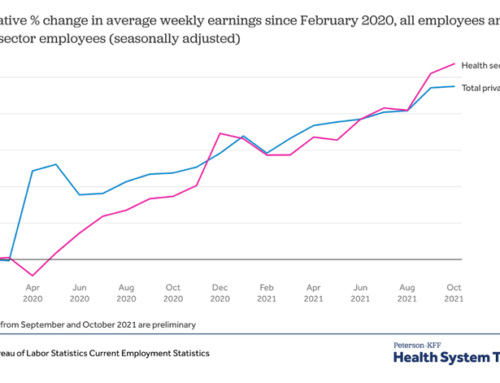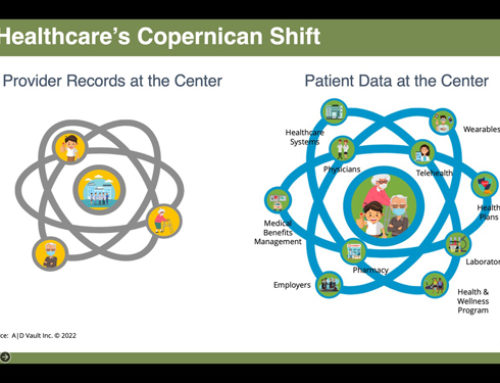By Kim Bellard, November 16, 2021
Last week General Electric announced it was breaking itself up. GE is an American icon, part of America’s industrial landscape for the last 129 years, but the 21st century has not been kind to it. The breakup didn’t come as a complete surprise. Then later in the week Johnson and Johnson, another longtime American icon, also announced it would split itself up, and I thought, well, that’s interesting. When on the same day Toshiba said it was splitting itself up, I thought, hmm, I may have to write about this.
Healthcare is still in the consolidation phase, but there may be some lessons here for it.
As unique as each of their stories is, the thing that each breakup has in common is that the hope is that investors will see greater value as a result. It’s not about the products or the customers; it’s about the returns.
Healthcare knows about that.
Healthcare has been a hotbed of acquisition and consolidation. Hospitals buy hospitals; health insurers buy health insurers, pharmaceutical companies buy pharmaceutical companies, digital health companies buy digital health companies, private equity firms buy physician practices. But we’re also seeing things like CVS buying Aetna or UnitedHealth Group buying DaVita Medical Group (and trying to buy Change Healthcare).
Still, though, when I see conglomerates like GE, J&J, or Toshiba breaking up, what I think about most are not those kinds of healthcare conglomerates, but, rather, hospitals.
Hospital systems are big. It probably won’t come as much surprise that a for-profit chain like HCA has annual revenues of $59b, but it might that “non-profit” UPMC has annual revenues of $23b. Mayo Clinic and Cleveland Clinic also report double digit billion dollar revenues. We’re talking about big businesses.
But are hospitals anything other than healthcare conglomerates? They fix your heart over here, they implant a new hip over there, they deliver your babies, they attack a variety of your cancers in a variety of ways, they put various kinds of scopes inside you, they take detailed images of you, and, Lord knows, they do all sorts of lab tests, all while running the meter on you to ensure they can charge you as much as they are allowed.
I can see the argument that you’ll need imaging and lab tests whether you are getting a bypass or having a baby, but it is not at all clear that doing bypasses makes a hospital a better place to deliver babies. Being the best cancer hospital, or even just a good cancer hospital, doesn’t mean it is good at doing a cholecystectomy. Service lines are businesses; it’s hard enough to ensure quality within a service line, much less across them. More isn’t necessarily better.
Michael Farr, head of Farr, Miller & Washington, told WaPo: “More effective CEOs said, ‘Wait a minute, I need to make sure this is strategically and logically integrated with everything our core business is doing.’” He was speaking of the GE divestiture, but how many hospital CEOs are having that same examination? How many of them could truly define their “core business,” other than offering a bland “patient care”? Which patients, which care, in what places using what services?
Increasingly, hospitals want to be all things to all patients in all places, just as industrial conglomerates wanted to serve all customers in all industries. That worked well for a long time, but no longer. That time is coming in healthcare too. Hospitals, and all healthcare companies, need to truly define, and focus on, their core business.
Healthcare has too many conglomerates. Time for them to break up.
This post is an abridged version of the original posting in Medium. Please follow Kim on Medium and on Twitter (@kimbbellard)



Leave A Comment